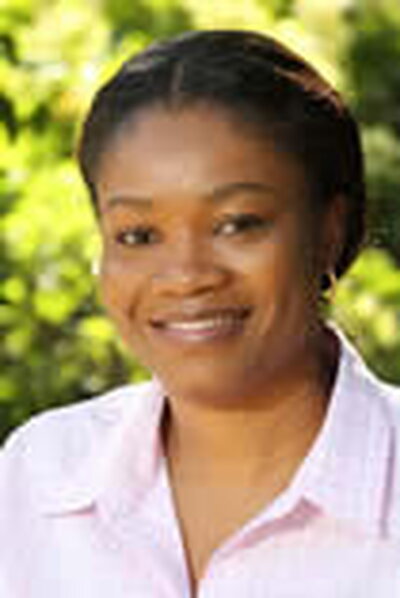
Tolulope Agunbiade

Dr. Tolulope Agunbiade graduated from the Department of Entomology at the University of Illinois at Urbana-Champaign (U of I) in May 2014. She is currently a postdoctoral fellow at the Howard Hughes Medical Institute (HHMI) unit at Yale University. Her PhD dissertation in the Pittendrigh lab at the U of I focused on the genomic analysis of the insect pests of cowpea in West Africa and for this, she obtained a prestigious international student research pre-doctoral fellowship from HHMI. She has played an active role in the Scientific Animations Without BordersSM (SAWBOSM) and also in the development of the Sustainable Development Virtual Knowledge Interface (SusDeViKISM). She has authored and co-authored more than 20 publications, the most recent of which is her work on the genetic differentiation among Maruca vitrata F. (Lepidoptera: Crambidae) populations on cultivated cowpea and wild host plants: Implications for insect resistance management and biological control strategies, which has been published in PLoS ONE (Agunbiade et al. 2014).
Abdulai Iddrisu
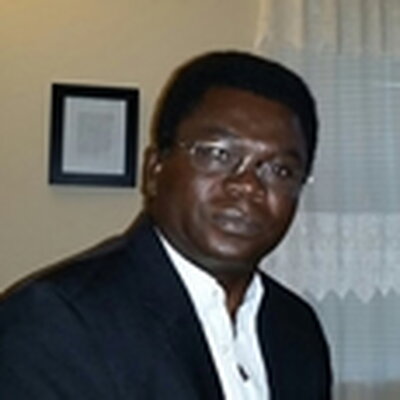
Dr. Abdulai Iddrisu joined the History Department at the University of Illinois in September 2003 and worked with Professor Jean Allman. He held a teaching assistantship for various courses and got the opportunity to take full responsibility for teaching one of the department’s core courses, History of Africa, until he graduated in May 2009. Soon afterwards, he began a tenure track appointment at St. Olaf College, a liberal arts College of the Lutheran Church in Northfield MN, where he still works. Dr. Iddrisu teaches African History, Muslim Societies in sub Saharan Africa, Women in African History, Africa and the Americas, and Global History.
His recent major publications include Contesting Islam in Africa: Wahhabism and Muslim Identity in Ghana; 1920-2010 (Durham, NC: Carolina Academic Press, for Africa World Series, 2013), Islamic Learning: The State and the Challenges of Education in Ghana (with David Owusu-Ansah and Mark Sey) (Trenton, NJ: Africa World Press, 2013), and "Philosophy of the Revolution: Thoughts on Modernizing Islamic Schools in Ghana," chapter 16 (with David Owusu-Ansah), in Engaging with a Legacy: Nehemia Levtzion (1935-2003), edited by E. Ann McDougall (New York: Routledge Press, 2012).
Recently, he received support from the St Olaf College Faculty Development Fund that enabled him to examine documents at the National Archives in London and to conduct life history sessions in Ghana during the summer of 2012. Currently, he is analyzing the material and working on a future project on Muslim women, herbal medicine, and society in West Africa.
Since 2010, he has worked closely with the Meals on Wheels program to distribute food to the elderly in Northfield, MN. Dr. Iddrisu has two lovely daughters, Neina and Pagnaa, who live with him in Northfield.
Christobel Asiedu
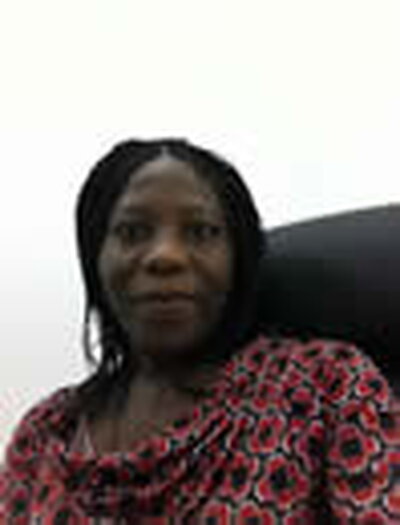
Dr. Christobel Asiedu is currently an Associate Professor of Sociology at the Department of Social Sciences, Louisiana Tech University. She graduated from the University of Illinois in spring of 2007 with a PhD in Sociology, and a graduate minor in Gender Relations in International Development. In the fall of 2007, she was offered a position as an Assistant Professor at Louisiana Tech University. She received tenure and was promoted to an Associate Professor in fall 2013. Since being at Louisiana Tech University, she has developed courses where she introduces students to gender and development issues in the developing world and in Africa in particular. The courses include: Gender and Society, Women in the Developing World, and Population and Global Development.
Dr. Asiedu was awarded an Endowed Professorship from 2011-2014 for recognition of her achievements in teaching, research, and service to the university. She was also honored as a nominee for her college (College of Liberal Arts) for the Virgil Orr Teaching Award for Junior Faculty in the spring of 2013.
In terms of publications, she has a forthcoming article in the Journal of Family Issues, entitled “Lineage Ties and Domestic Violence in Ghana: Evidence from the 2008 Ghana Demographic and Health Survey.” Additionally, she published two articles in the past two years on Gender and ICTs: “Information Communication Technologies for Gender and Development: A Review of the Literature in Information, Communication & Society,” 2012, and “Information Communication Technologies (ICTs) for Gender and Development in Africa: The Case for Radio and Technological Blending,” 2012, in International Communication Gazette. She has also co-authored an article titled, “The Socioeconomic Determinants of HIV/AIDS Infection Rates in Lesotho, Malawi, Swaziland and Zimbabwe,” 2012, in the Development Policy Review.
In February 2014, she presented a paper called “Information Communication Technologies (ICTs) and Women’s Empowerment in Africa” at the Sociologists for Women in Society Winter Meeting in Tennessee. She also presented a paper on “Domestic Violence and Lineage Ties in Ghana” at the American Sociological Association Meeting in Denver, Colorado.
Esther Somé-Guiébré
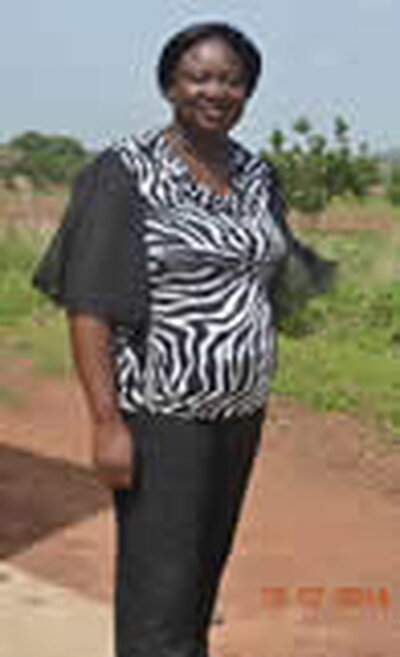
Dr. Esther Somé-Guiébré is a citizen of Burkina Faso (West Africa). She graduated from the Center for African Studies where she received a Masters of Art in 2007 and from the department of Curriculum and Instruction in 2012 after completing her PhD. Upon graduation, she moved back home to Burkina Faso, where she secured a tenure-track position as an assistant professor in the College of Education at the Université de Koudougou (an hour-ride from Ouagadougou, the capital city). At the Université de Koudougou, Dr Somé teaches graduate students majoring in English didactics and supervises their thesis research. She also mentors and works with pre-service and in-service teachers of English as a Foreign Language (EFL), as well as EFL teacher supervisors and advisors.
In addition to teaching, Esther has remained active on the research front. She presented a paper entitled “Multicultural Education in Burkina Faso: Analysis of a Textbook,” at the Riara’s first International Conference in Kenya in July 2013. She is currently combining her research interest on immigration issues, multicultural education, and instructional strategies with a focus in syllabus design, mainly focusing on the adaptability of the current EFL syllabi of Burkina Faso to local social, cultural, and economic realities. Her publications, a journal article and book chapters, include “The struggles of African immigrant students in US classrooms: The case of a 5th grader,” in T. H. Some & P. Orelus, Re-defining America: The new wave of minority students and immigrants of color, Information Age Publishing (Forthcoming), Somé-Guiébré (2014), “Multicultural Education in Burkina Faso: Analysis of a Textbook,” International Journal of Research and Education, 2, 93-100, Somé-Guiébré (2011), “Tutoring children of immigrants in a multicultural context: A Case Study,” in T. Falola & S.U. Fwatshak, Beyond tradition: African women in cultural and political spaces, Africa World Press.
With regard to leadership and community service, Esther has been an active member of the women’s group of her community, where she has served as president since 2013. She draws on her international and professional experience to address some common concerns of the group members and their families, mostly regarding educational and social aspects.
Lance Larkin
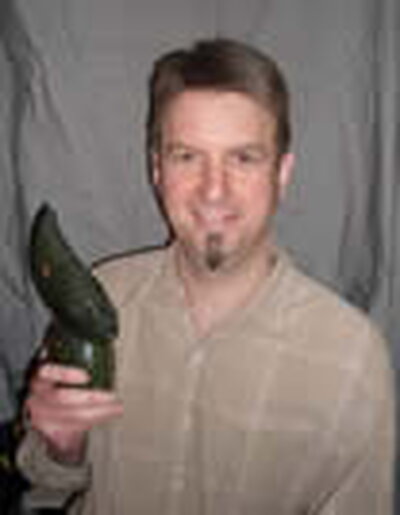
Dr. Lance Larkin graduated from the Department of Anthropology and joined the Center for African Studies as a research scholar in 2014. He then began teaching at Illinois Wesleyan University’s Department of Sociology and Anthropology as an adjunct professor. He will also teach as an adjunct at Illinois State University in spring 2015. This year he gave a presentation, “The Incoherency of Fieldwork and Knowledge Production: Exploring Artistic Case Studies in South Africa and Nevada,” at the annual meeting of the American Anthropological Association in Washington, D.C. In spring he presented a paper, “South Africa’s Long Walk to Artistic ‘Freedom’: Limiting Aesthetic Practice through Government (In) Action,” at the annual meeting of the Central States Anthropological Society in Normal, Illinois.
Joseph Miller
Joseph Miller earned his Master’s degree in Geography in 2009, funded in part by three Foreign Language and Area Studies Fellowships (FLAS). Joseph studied Kiswahili which was instrumental in his field work where he examined the use of ecotourism and “sustainability” discourse to resist state land appropriations near Tarangire National Park in Tanzania. After his graduate work, Joseph worked for the Study Abroad Office at the University of Illinois coordinating international faculty-led programs. Returning to Tanzania as a director of Amizade’s Global Service Learning program, Joseph taught several undergraduate courses on sustainable development and grappled with the theoretical and practical implementation of “service” based international education. Joseph is now an Academic Programs Coordinator with the Committee on Institutional Cooperation (CIC), an academic consortium mirroring Big Ten membership and also including the University of Chicago. When not working on projects directly related to Tanzania, Joseph engages his interests in less-commonly taught languages through the management of CIC’s CourseShare program, one of the several programs he manages. CourseShare helps less-commonly taught language courses with low enrollments survive by offering them across the CIC, connecting students to a host classroom via videoconferencing technology. Through CourseShare, CIC students’ access to less-commonly taught language courses otherwise not available is drastically increased, affording access to the over 100 less-commonly taught languages offered throughout the CIC. Joseph’s exposure to Kiswahili through the African Studies Center’s FLAS funding cultivated in him an appreciation for the benefits of studying less-commonly taught language.
Ashley Sheriff

Ashley Sheriff graduated from the University of Illinois with a joint MS in Library and Information Science and MA in African Studies in December 2013. She continued to draw from her former coursework and research at the Center for African Studies to produce excellent scholarship. Earlier this year her bibliography entitled “Symbolic Restitution: Post-Apartheid Changes to the South African Heritage Sector, 1994-2012” was published in the 16th volume of the Electronic Journal of Africana Bibliography—an online, open access, and peer-reviewed journal. This is a revised version of her final project for Professor Emeritus Alfred Kagan’s Bibliography of Africa course. Around the same time, an article she wrote on “Tanzania’s History and Heritage” was published in the 2014 Encyclopedia of Global Archaeology, an interdisciplinary multi-volume reference work produced by Springer Publications.
Shortly after receiving her MS in Library and Information Science and MA in African Studies, Ashley accepted a positon as Cataloging and Acquisitions Assistant at Lake Land College Library, which supports the curricula of the college’s 140 academic programs. Her primary responsibilities included supervising the day-to-day operations of the technical services department, cataloging new acquisitions, and maintaining bibliographic records and budgetary accounts for the library. Before resigning, Ashley worked with Illinois Heartland Library System (IHLS) personnel to elevate Lake Land College Library from its former barcoding status to a cataloging library. For the first time since the collection’s establishment in 1968, the library preformed in-house cataloging rather than routinely outsourcing materials for cataloging services.
Ashley will continue to pursue her research interests as an independent scholar and advance her knowledge of local and national cataloging policies and procedures.